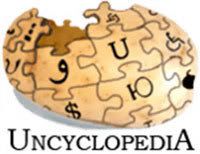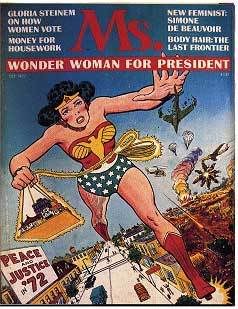| The Josh Wolf case has raised important questions about who qualifies as a journalist and whether journalists should be shielded from participating in government investigations. But as urgent as these questions are, it is unfortunate that they have so completely overshadowed some of the finer points of this case — specifically, the terms of the subpoena that Wolf refused to comply with, and of the deal he ultimately made with the U.S. Attorney. The subpoena demanded Wolf's unedited video and his testimony before a federal grand jury. The video has taken center stage as the "real point" of the case, but as Wolf has pointed out repeatedly, the really urgent issue was the testimony. Grand jury proceedings are secret; no records are ever published, so no one can ever prove whether they restricted their testimony to necessary or known facts. And the grand jury can ask anything. Who was that person standing next to you at the protest? Do they belong to any other activist organizations? Who else belongs to that organization? The person testifying does not have a lawyer present, cannot refuse to answer any questions, and can never prove that he or she didn't name names. This is what Wolf found "more egregious" than turning over the tapes, and I agree with him. He also couldn't say very much about it, on the advice of his lawyers. So the tapes naturally became the focus of the story, because that's all that could be talked about. Fair enough. Until his release. Since then he has said plenty, but somehow it isn't making its way into the news. The story still seems to be: Wolf Gives Up Tapes, Gets Out of Jail. This is true, but is far from being the whole story — in fact, it actually conceals the real story, or at least gives the impression that the "fine print" is insignificant. It's not. It's really not. Of course, it isn't the fault of any reporter or news writer when city officials come out with lamentably silly and uninformed-sounding non-statements such as Tom Ammiano's ("Josh did what the Giants couldn’t do today, he hit a home run") and Ross Mirkarimi's ("You went in as a blogger. You’re out as a hunk with a new cause we can rally around"). These vapid sound bites do nothing except help brand the politician as being on the "right side" of a fight. So the newspapers that report what was said can't entirely be blamed for reducing a complex issue to a simple zero-sum game. But some news writers deserve a bit more blame than others. No matter what facts and quotes the writer is stuck with, it's still his or her job to present information with as much relevant context as possible, and to avoid reinforcing skewed and misleading interpretations. To illustrate my point, I'd like to quote from an article published last week in the San Francisco State University campus newspaper, The Golden Gate [X]Press. Immediately following the rah-rah nonsense from the two city supervisors, the article reads: "Wolf’s freedom came after reaching an agreement with the United States Attorney’s office to submit raw footage he shot of an anti-globalization protest through the Mission district in 2005 as part of an investigation regarding the assault of a police officer and the torching of a police car during the protest. Wolf denied that anything of value is on the tape. Along with his release from prison, Wolf will not have to testify before a Grand Jury in the investigation." To me, this presents a simple equation: Wolf gave up the tapes and as a reward was let out of prison and told he didn't have to testify before the grand jury. Primarily, it suggests that Wolf's goal — the point of his entire ordeal — was to protect the tapes, period. Yet what we know (or what more of us would know if this part of the story got some attention) is that giving up the tapes would have qualified as proof that incarceration was likely to succeed in coercing him to testify for the grand jury. Giving up the tapes would have amounted, legally, to his saying "Keep me here long enough and you will get my full cooperation." Protecting the tapes wasn't about protecting the tapes — it was about resisting the more egregious demand for his testimony. This is why Wolf had already repeatedly offered to let a judge view the tapes: they had nothing on them, there was nothing he needed to protect, but giving them up per the terms of the subpoena would have gone a long way toward forcing him into the other part as well. Does it matter that one person managed to resist that order? I think it does. I think it matters so much that it should be plastered in a huge font across every newspaper in the land, along with all of the tedious, complicated, fine-print details — so that the next person in Wolf's situation, whether they're a blogger or a journalist or not, can be prepared. |  Photo source: jameswagner.com Photo source: jameswagner.comExerpt from Josh Wolf's statement on February 6, 2007, upon becoming the longest-incarcerated journalist in U.S. history: The second reason compelling me to refuse to cooperate with the Grand Jury subpoena is that this whole thing is not about what the government would have you believe it to be. This case is not about a videotape, it’s not about identifying suspects of a crime and it’s not about obtaining justice. If it were, then the U.S. Attorney would not have argued against the judge reviewing my outtakes in his chambers and the U.S. Attorney would have been more receptive to the inquires my defense team made. No, this case is not about a videotape and it’s not about justice. This entire matter is about eroding the rights of privacy and those of a free press. It is about identifying civil dissidents and using members of the news media to actively assist in what is essentially an anarchist witchhunt. This is what I have suspected from the beginning, but it has been brought closer into focus with the government’s recent response to our motion. I will not allow myself to be put in a position of outing anarchists who likely are guilty of nothing more that possessing political beliefs outside the American norm. How many of the freedoms promised to us in the Bill of Rights are still intact? How many more liberties will be eroded away? The future is uncertain, but at present the military continues to wage war in Iraq in the name of freedom. I don’t know whether to laugh or cry at the tragic irony of it all. The role of the media is to ask the questions, to point at those inconsistencies, and to demand answers from the powers that be. This is why the media is under attack and this is why it is so urgent that we continue to fight back. Because without a free press we can never be free. And I’ll conclude with the word of Mario Savio that defined the Free Speech Movement some 40 years ago and still possesses a tremendous vitality today. On December 2, 1964, in the city of Berkeley, Savio stated, “There’s a time when the operation of the machine becomes so odious, makes you so sick at heart, that you can’t take part, you can’t even tacitly take part. And you’ve got to put your bodies upon the gears and upon the wheels, upon the levers, upon all the apparatus, and you’ve got to make it stop. And you’ve got to indicate to the people who run it, to the people who own it, that unless you’re free, the machine will be prevented from working at all.” Thank you, and I look forward to returning back to San Francisco just as soon as the government comes to its senses and realizes that I will not- that I cannot be coerced. Thanks again, Josh Wolf |










 Here's the little dude who scared the pants off Boston. He's a Mooninite, and he's flipping you off.
Here's the little dude who scared the pants off Boston. He's a Mooninite, and he's flipping you off.





